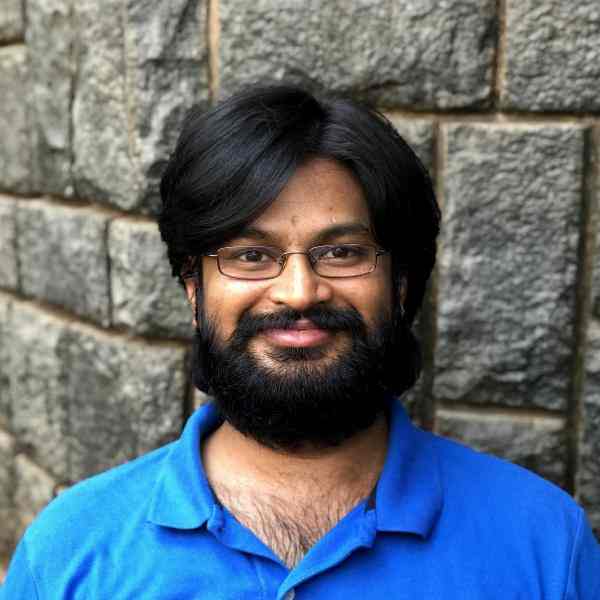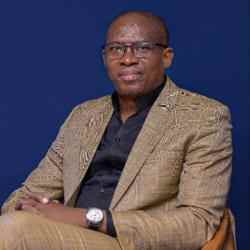Through his organization, Fields of View, Bharath operates along three strategic lines: a policy lab, school of policy, and the making policy accessible initiative.
Every Fields of View project taken up in the policy lab is done in partnership with either a government or a civil society… Read more
Through his organization, Fields of View, Bharath operates along three strategic lines: a policy lab, school of policy, and the making policy accessible initiative.
Every Fields of View project taken up in the policy lab is done in partnership with either a government or a civil society organization or both. Bharath uses this strategy to ensure that the tools they create will be useful in their constituents’ contexts, as the goal is to embed the practice of reusing and updating them. The policy lab connects constituents with each other and enables them to evaluate policies and improve monitoring and feedback, which is part of the government’s mandate. The project Joint Road Forward, for example, aims to better design transport infrastructure in Bangalore, by leveraging different forms of relevant data, and by getting the citizens’ group Bangalore Bus Prayaanikara Vedike (BBVP) to collaborate with the BMTC (Bangalore Metropolitan Transport Corporation) through games and simulations that help both sides negotiate services. The tools developed allow citizen groups to demand better services, while understanding the constraints faced by BMTC. These tools help BMTC plan in a way that they can include the needs and preferences of commuters in their plans. Thus, these tools allow different stakeholders ways of articulating one’s priorities and constraints while also having incentives to ‘try on’ the perspectives of other stakeholders and consider alternatives together. Following Fields’ of View’s work in Bangalore, the Directorate of Urban Land Transport (DULT) has asked Bharath to work on planning for inclusive transportation in Tier-2 and Tier-3 cities. Bharath has a vision that India can become a leader in collaborative reimagining of policies, because its familiarity in coping with competing identities is an opportunity to create exemplars that other countries can use as well.
The second example related to disaster management at both state and national levels illustrates how Fields of View’s games and simulations create a realistic, non-threatening environment that exposes participants to different perspectives and disciplines that generally function in silos. The National Disaster Management Authority has largely borrowed international protocol for communication between agencies during disasters and sophisticated software, which don’t fit local Indian realities and thus are not uniformly followed by all agencies. Therefore, in practice, the agencies revert to inefficient older communication protocols. To address this, Bharath co-created tools with the NDMA to design a game to understand how information actually flows during a disaster, between different disaster management agencies. Outcomes from these games were used by the national Department of Science and Technology to introduce more flexible new protocol that empowered different agencies to collaborate and customize their plan of action based on the events disasters or specific scenarios. Bharath's design criteria are that the tools need to be both scalable and replicable, ensuring that the tools themselves can be used in different contexts.
In the school of policy, Fields of View works with universities and policy training institutes to build a pool of talent that includes current and future designers, planners, and policymakers who can design for social problems in a way that allows for foresight and inclusion. For example, Fields of View in collaboration with UNESCO-MGIEP (Mahatma Gandhi Institute for Peace and Sustainable Development) developed a game on the Inclusive Wealth Index (IWI) for policymakers, in universities worldwide and at executive leadership programs. The game Cantor’s World has been designed for policymakers to experiment with different policy choices and experience first-hand the tug-of-war between short-term results and long-term sustainability. Bharath teaches game design in different institutions, including National Institute of Design, and International Institute of Information Technology, Bangalore. All hisIn order to improve meaningful participation of citizens in the policymaking process, Fields of View undertook the making policy accessible initiative to enable an informed discourse and debate among those who are affected by these policies. Under this initiative, Fields of View is working on a combination of games, videos, comics, and in the future, non-sensational graphic novels. For example, Rubbish! is a tri-lingual board game designed with the team at Hasirudala in Bangalore, who work with waste, to address gaps in knowledge and behaviour among citizens when it comes to the waste eco-system. The game promotes a holistic understanding of the waste management system, and facilitates immersive learning which allow the players to examine and reflect on their choices related to segregation of waste, and the environmental cost of consumption.
Bharath’s work on urban poverty in Bangalore draws from a survey of 27 slums, which he was involved in, to co-design processes to identify priorities and interests of the communities. Bharath’s work on urban poverty challenges and debunks prevalent assumptions about the relationship of slums to the city (such as slums are a drain on the city’s economy) and paves the way for a more informed and evidence-based policy for addressing urban poverty.
So far, Bharath’s organization has been funded by research grants and grants that are payment for services rendered. He is working on creating a robust model for his organization to warrant that they do not work in isolation by ensuring that 50% funding comes from research grants and the remaining 50% comes from an endowment that he is building. This ratio would keep them tuned to needs as they arise and create tools that will be relevant to gaps in governance. Initially, Bharath thought that funding could arise from 4 sectors - the government, CSOs, academia and the industry, and in his experience, he found that the government and CSOs were most open to funding his work because inherently he was helping them be more effective at their jobs. By 2020, Bharath aims at creating tools under an open source license that is the need of the hour for CSOs and governments but they lack funding. He wants to work on building an ecosystem of actors to activate a network that will help address the issues around policy-making, so that stakeholders can leverage each other’s strengths through dialogue. Bharath has worked with 4 different departments of the government of India and 15 CSOs and academic institutions, all across India, Sri Lanka, and the Netherlands.
Read less



